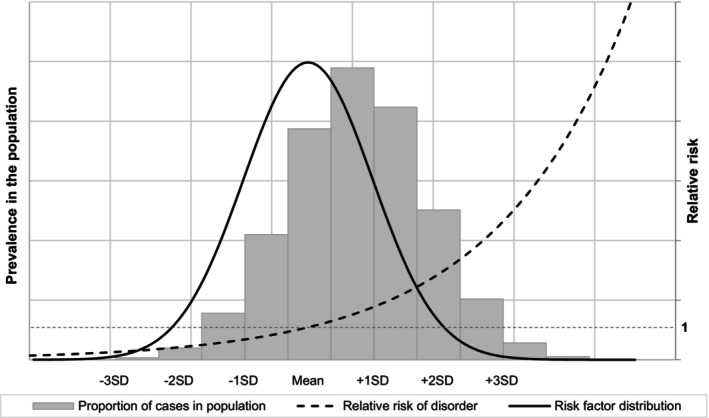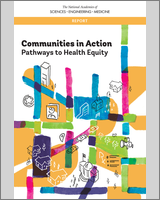## More Than Just a Hashtag: Why Philadelphia is Taking Black Maternal Health to Heart Motherhood is a powerful experience, a celebration of life and strength. But for Black mothers, that journey is often shadowed by a stark and heartbreaking reality: they are three to four times more likely to die from pregnancy-related complications than white mothers. This isn’t just a statistic; it’s a crisis demanding our attention. This Black Maternal Health Week, the City of Philadelphia is stepping up, recognizing that real change comes not from silence, but from collective action and unwavering advocacy. Join us as we explore how Philly is leading the charge, empowering Black mothers and fighting for a future where every birth is a story of triumph.
Breaking the Cycle of Disadvantage

The alarming rate of maternal mortality among Black women in the United States is a pressing concern that requires immediate attention and collective action. The social determinants of health, including poverty, lack of access to education and healthcare, and systemic discrimination, contribute to the cycle of disadvantage that perpetuates poor health outcomes for Black mothers.

The Importance of Addressing Intergenerational Cycles of Disadvantage
Research has shown that people exposed to unfavorable social circumstances are more vulnerable to poor mental health over their life course, which is often determined by structural factors that generate and perpetuate intergenerational cycles of disadvantage and poor health. Breaking this cycle is crucial to addressing health inequities and promoting health equity.
Intergenerational cycles of disadvantage are perpetuated by systemic and structural factors, including poverty, discrimination, and lack of access to education and healthcare. These factors contribute to poor health outcomes, including maternal mortality, and limit opportunities for social mobility and economic empowerment.
The Need for Primary Prevention Strategies to Reduce Inequalities
Primary prevention strategies are essential to reducing health inequalities and promoting health equity. These strategies focus on preventing health problems from occurring in the first place, rather than treating them after they arise. By addressing the root causes of health inequities, primary prevention strategies can help to reduce health disparities and promote better health outcomes for all.
Primary prevention strategies can include policies and programs that address the social determinants of health, such as poverty, education, and employment. For example, policies that promote affordable housing, improve access to education and job training, and increase access to healthcare can help to reduce health inequities and promote better health outcomes.
Empowering Communities through Collective Action and Advocacy
Empowering communities through collective action and advocacy is critical to breaking the cycle of disadvantage and promoting health equity. Communities must come together to demand change and advocate for policies and programs that address the root causes of health inequities.
Collective action and advocacy can take many forms, including community organizing, policy advocacy, and grassroots activism. By working together, communities can build power and demand change, promoting better health outcomes and greater health equity.
A Call to Action: Prioritizing Social Justice and Health Equity
The alarming rate of maternal mortality among Black women in the United States is a call to action to prioritize social justice and health equity. Addressing health inequities requires a comprehensive approach that addresses the root causes of health disparities, including poverty, discrimination, and lack of access to education and healthcare.
The Imperative of Addressing Health Inequity through Policy and Practice
Addressing health inequity is an imperative matter of social justice. Health inequities are unfair and avoidable differences in health outcomes that are influenced by social, economic, and environmental factors. By addressing health inequities, we can promote better health outcomes and greater health equity.
Policies and practices that address health inequities must prioritize social justice and health equity. This requires a commitment to addressing the root causes of health disparities, including poverty, discrimination, and lack of access to education and healthcare.
The Role of Research and Public Health in Promoting Health Equity
Research and public health play critical roles in promoting health equity. Research can help to identify the root causes of health inequities and inform the development of effective interventions. Public health can help to promote health equity by addressing the social determinants of health and promoting health equity through policy and practice.
Public health can also play a key role in promoting health equity by addressing the root causes of health inequities, including poverty, discrimination, and lack of access to education and healthcare. By prioritizing health equity, public health can help to promote better health outcomes and greater health equity.
Seven Key Recommendations for a Roadmap to Change
The following are seven key recommendations for a roadmap to change:
- Address the social determinants of health: Policies and programs must address the social determinants of health, including poverty, education, and employment, to reduce health inequities and promote health equity.
- Prioritize health equity in policy and practice: Health equity must be prioritized in policy and practice to address the root causes of health inequities and promote better health outcomes.
- Invest in community-based initiatives: Community-based initiatives can help to empower communities and promote health equity by addressing the social determinants of health and promoting health equity.
- Support research and data collection: Research and data collection are critical to understanding the root causes of health inequities and informing the development of effective interventions.
- Promote diversity, equity, and inclusion: Diversity, equity, and inclusion must be promoted in policy and practice to address the root causes of health inequities and promote health equity.
- Foster community engagement and participation: Community engagement and participation are critical to promoting health equity and addressing the root causes of health inequities.
- Develop a comprehensive approach to addressing health inequities: A comprehensive approach to addressing health inequities must be developed, one that addresses the root causes of health inequities and promotes health equity.
By following these recommendations, we can promote health equity and address the root causes of health inequities, including poverty, discrimination, and lack of access to education and healthcare.
Conclusion
In conclusion, Black Maternal Health Week is a crucial movement that sheds light on the alarming disparities in maternal health care experienced by Black women in the United States. As discussed in this article, the City of Philadelphia’s initiative aims to address these systemic inequalities through collective action and advocacy. By amplifying the voices of Black women, promoting policy changes, and supporting community-based solutions, we can work towards a future where every mother has access to equitable and quality care.
The significance of this movement cannot be overstated. Black women are three to four times more likely to die from pregnancy-related complications than their white counterparts, with the majority of these deaths being preventable. This is not just a health issue, but a matter of racial justice and human rights. By acknowledging and addressing these disparities, we are not only saving lives but also challenging the deeply ingrained biases that perpetuate inequality. As we move forward, it is essential that we continue to prioritize the needs and experiences of Black women, listening to their stories and empowering them to take control of their own health.
As we look to the future, it is imperative that we recognize the power of collective action and advocacy in driving meaningful change. By working together, we can create a world where every mother, regardless of race or socioeconomic status, has the opportunity to thrive. Let us continue to amplify the message of Black Maternal Health Week, and let us strive to create a society where every Black mother is valued, respected, and protected. As the movement so poignantly puts it, “our bodies, our babies, our power” – may we continue to harness this power to forge a brighter, more just future for all.